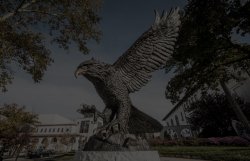Legacy Donors Help Generations to Come
Alumni Barbara Brummer, Jim Merli and Professor Emeritus Robert Pines are among many donors creating a lasting legacy with planned gifts to the University.

Marian McGinty credits Montclair State University for giving her an opportunity to reinvent herself at age 60. For Education Professor Emeritus Robert Pines, it was a source of personal identity and inspiration during his 33-year tenure. For others, the University provided the springboard to successful careers, whether as a school administrator, investment banker or business executive.


The donors share a mission to support the future of Montclair State and its students as members of the Carpe Diem Society, whose members have committed to leave a portion of their estate to the University.
More than $22 million has been raised in legacy gifts in the University’s current Soar campaign. Some donors establish a gift annuity or designate a percentage of their retirement account. Others transfer property, name the University as a beneficiary or leave a residual amount to establish endowed or spendable scholarships.
Morgen O’Neal, Class of 2020, says the support can have a life-changing impact for students. “It is because of loyal donors that I can continue my education and follow my dream,” she says.
McGinty was a 60-year-old widow and volunteer usher for TheaterFest when she was offered a job as group sales director, an experience that helped her realize hidden talents.
“I’d never gone to college or anything like that,” she says. “To have someone call me and think they needed me was empowering.”
McGinty hopes to enable someone else’s second act, designating a music scholarship aimed at students starting over. McGinty always loved to sing but didn’t study voice until she was 41, and went on to do community theater.
It is McGinty’s second major gift to the University. Five years ago, she established the Charles P. McGinty Memorial Scholarship in her husband’s name, to be awarded to a male vocalist enrolled in the College of the Arts.
Retired investment banker Jim Merli ’83 joined the Feliciano School of Business Advisory Board in 2012, working to ensure faculty and students will be prepared for the ever-changing demands of the workplace.
Merli says his tenure on the board and work as an adjunct professor and executive-in-residence offered a window into the challenges students and universities face.
“The more I got involved, the more I liked what I was seeing and what I felt like we were accomplishing,” he says.
Merli and his wife, Sandy, made a gift to the School to name the James W. Merli Executive Conference Center, but also designated a portion of their estate for student scholarships.
“Students today need help with college costs,” he says. “It was important to me to give back to Montclair State.”
Pines says the years he spent teaching at the College of Education and Human Services, prior to retirement in 2003, were deeply gratifying, both personally and professionally. “I think the University contributed more to me than I did to it,” he says.
Pines said he was constantly inspired by the strong work ethic and passion his students brought to teaching. But he also recognized the financial struggles many faced and wanted to find a way to help. Through his estate, Pines designated an annual scholarship award – the Robert Pines Scholarship – for an honor student and future teacher in their last year of school.
“This was just a logical extension of my past association with our students,” he says.
Barbara Brummer ’68, New Jersey’s state director at The Nature Conservancy, spent much of her career as an executive with Johnson & Johnson, including president of J&J Canada Inc., and is chair of the College of Science and Mathematics Advisory Board at the University, serving also on the University’s Campaign Cabinet.
Brummer, who earned her undergraduate degree in biology, says she owes her success to the professors “who inspired me to learn and apply.”
Brummer says participating in a planned giving program was important to her because “women need to help others by offering a hand up.”
George Iannacone ’54 spent 31 years working in education after earning his undergraduate degree. He recalls the close-knit community he experienced as a student and still maintains close friendships with his fellow classmates.
Iannacone was part of a pioneering effort in the 1950s to produce live broadcasts of curriculum in the early days of television.
“I felt very fulfilled, academically and socially,” Iannacone recalls. “I felt like we were connected to the world.”
Participating in the Carpe Diem Society, he says, “is the right thing to be socially responsible and contribute to the institutions that we enjoy.”

